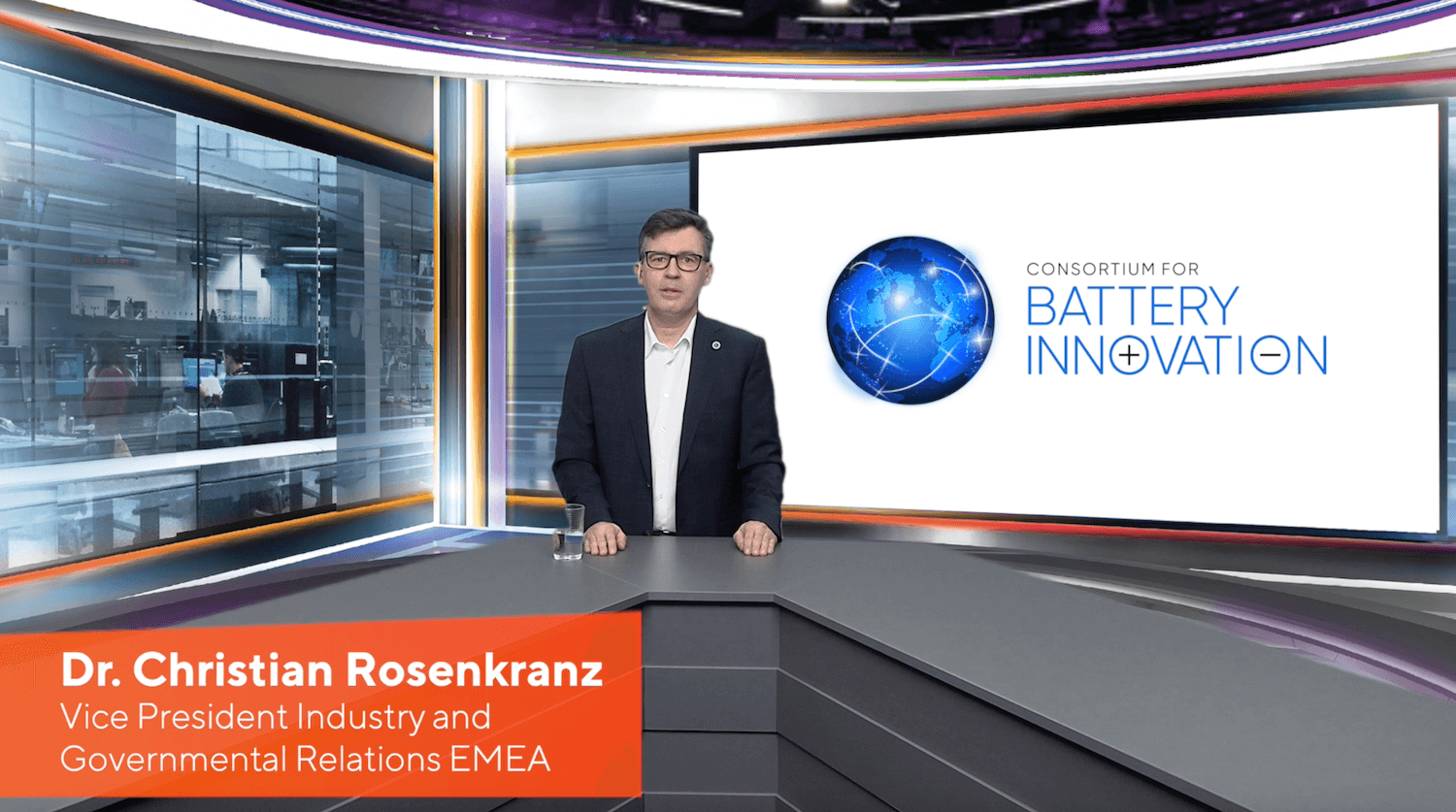
19 January 2021
NEWS RELEASE - 19 January 2021
Investment in battery research is key to reducing carbon emissions and boosting electrification, according to the newly appointed chairman ofglobal battery research hub the Consortium for Battery Innovation (CBI).
Dr Christian Rosenkranz is calling on governments and industry to work more closely to help accelerate the development of advanced battery technologies. Dr Rosenkranz, who is Vice President Industry and Governmental Relations EMEA of CBI member and battery manufacturer Clarios, said: “We need to see a huge uplift in rechargeable battery energy storage if countries are to get anywhere near the global targets for reducing carbon emissions. As we approach the COP26 talks later this year we should be pressing for more commitments to support battery research into new and existing technologies in partnership with industry.

“At the Consortium we are conducting and supporting innovative research projects in Europe, the United States and Asia which will significantly improve the performance of advanced lead batteries. But we need to see a concerted effort to support further research efforts to support high-performance, reliable and cost-effective batteries for the future.”
A long-standing member of the lead battery industry, Dr Rosenkranz aims to build on the success of CBI since its formation in 2019. He said: “It’s an exciting time to head a consortium which has already made great strides in driving global innovation in lead battery technology across all applications.”
Dr Rosenkranz replaces Dr Tim Ellis, of RSR Technologies, CBI’s inaugural chairman.
“I’m grateful to Dr Ellis for his pivotal leadership in helping ensure CBI plays a vital role in demonstrating the innovation potential of lead batteries around the world” Dr Rosenkranz said.
Clarios, a global leader in automotive batteries, is actively supporting the electrification of the automotive power train with the advanced lead batteries they design and manufacture. The universal introduction of AGM (Absorbent Glass Mat) batteries provides optimal performance in the automotive environment and Clarios is leading development and innovation in the technology through four global R&D centers to optimize the capture of recuperative energy in vehicles.
Driving the research underway at CBI is a technical roadmap which is at the forefront of delivering performance enhancements for lead batteries. Identifying the highest priority research goals for lead battery technology, Dynamic Charge Acceptance (DCA) is a performance enhancement crucial for the growing micro-hybrid market, predicted to represent over 80% of European car sales by 2030.
Director of CBI, Dr Alistair Davidson, said: “DCA is the ability of batteries to store instantaneous energy in a vehicle and is a vital part of what makes start-stop and hybrid vehicles more fuel efficient and emit less CO2. Improving DCA is a central research pathway for CBI and one which is critical for both Clarios and the whole industry”.
CBI is working with researchers, testing institutes, battery manufacturers and automotive companies across the globe to achieve the market-driven research goals which will be critical for lead batteries to continue their crucial contribution to a low carbon future. The current technical program is demonstrating exciting routes for improving DCA by up to 40% and showing how tools such as battery management systems can significantly improve cycle life, a key technical parameter for energy storage applications.
The suite of technical projects being conducted in collaboration with CBI not only drive automotive battery improvements but are also leading the way in energy storage battery research. The new technical program due to be announced this year will have a strong focus on this emerging market where lead batteries are utilized around the world to support utility and renewable energy storage and CBI’s role beyond research is connecting the storage sector with high-performing lead batteries for systems such as through the online CBI Battery Match tool.
Clean mobility and clean energy are central pillars in facilitating Europe’s shift to become climate-neutral by 2050, and batteries remain a central part of this as they continue to innovate to meet evolving demand for reliable, sustainable and high-performing batteries.
END
Notes to editors:
+++

23/09/2025